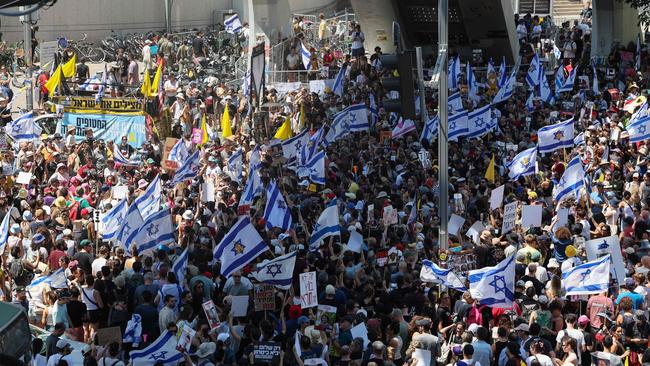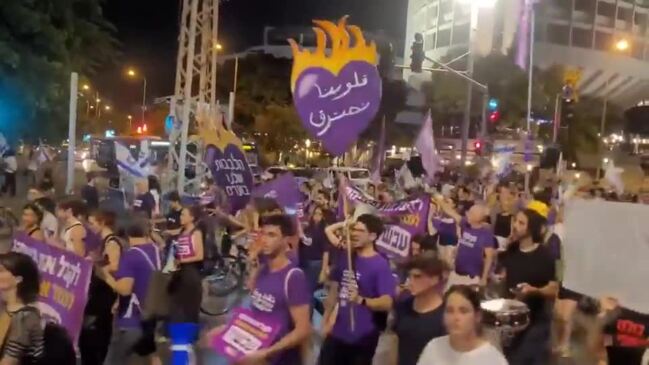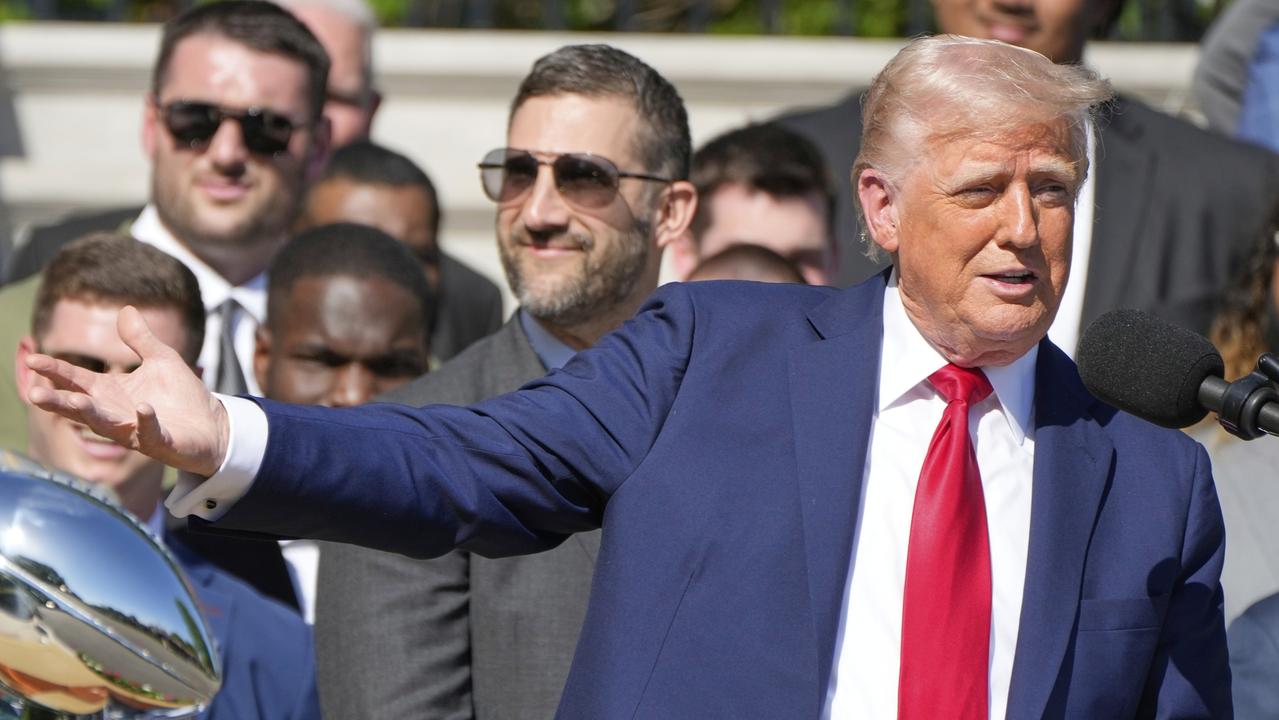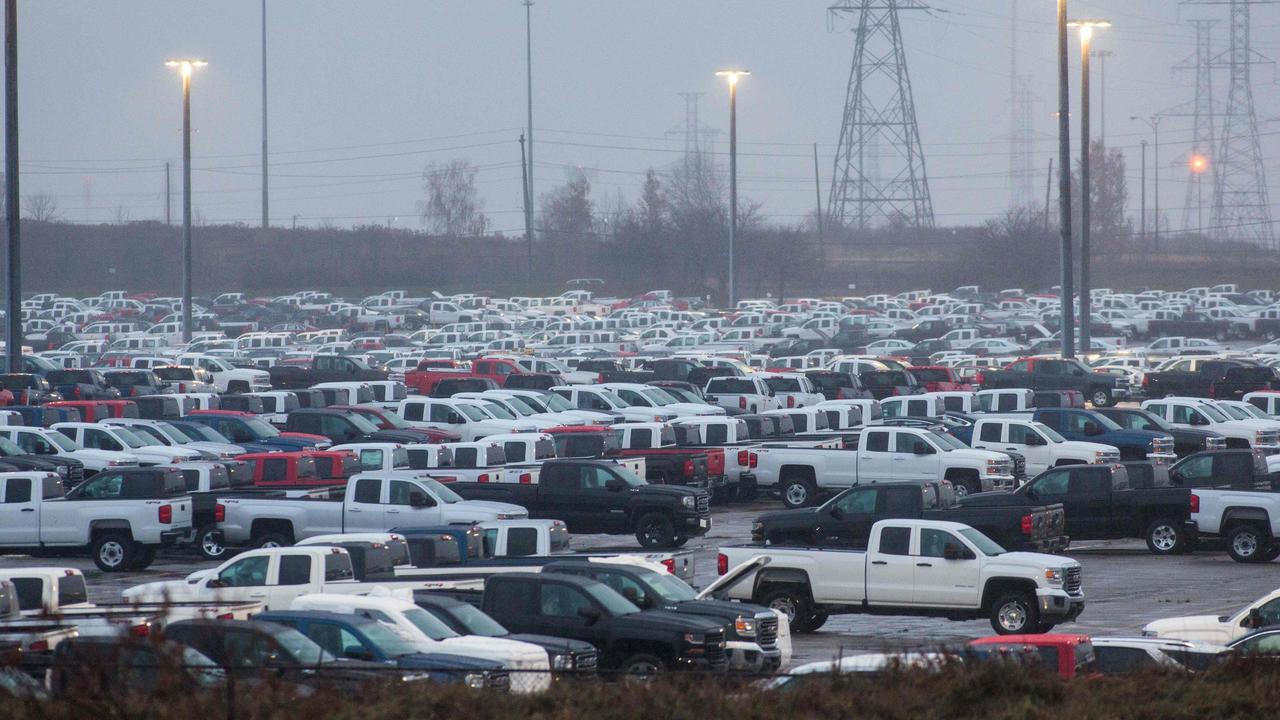Israel’s divisions deepen over hostage crisis, Gaza bloodshed
Israeli Prime Minister Benjamin Netanyahu is refusing to bow to internal pressure over a deal to release Hamas-held hostages, in the face of a national strike and protest rallies.

Israel’s political divide deepened overnight on Monday, as cities were hit by a national strike and people took to the streets to protest the government’s failure to reach a deal to free hostages held by Hamas.
Tensions spiked after authorities said over the weekend that the Palestinian militant group had killed six hostages in captivity. Many Israelis said they felt Prime Minister Benjamin Netanyahu and other leaders had in effect condemned them to certain death.
Tens of thousands of Israelis marched in the streets on Sunday night and protests continued on Monday night, as four of the six dead hostages were laid to rest.
Mr Netanyahu dug in during a televised address on Monday night, arguing he wouldn’t back down from his insistence that Israeli troops remain along the border between Gaza and Egypt to prevent future wars with Hamas.
Negotiators have said the demand has stalled a deal that would free many of the remaining hostages in exchange for a ceasefire in Gaza and the release of Palestinian prisoners held by Israel. Israel’s cabinet affirmed Mr Netanyahu’s position in a vote last week.
“I won’t surrender to this pressure. Our nation won’t surrender to this pressure. And I’m telling (Hamas leader Yahya) Sinwar, ‘forget it. It won’t happen’,” he said.
Bezalel Smotrich, Israel’s hard-right Finance Minister, criticised union leaders for striking, saying the head of Israel’s largest union, Arnon Bar-David, was “fulfilling the dream of Sinwar”.
The hostages, found by the Israeli military in a tunnel in Rafah, were likely shot to death 48-72 hours before being discovered, the Health Ministry said on Sunday. After saying for days that Israel had killed the hostages with its bombing campaign in Gaza, Hamas issued a new statement on Monday suggesting it had executed them and would do so again if Israel’s military attempted further rescue missions.
“Military pressure equals death and failure. An exchange deal equals freedom and life,” the group said in a statement written in Hebrew over an image of a militant holding a handgun before a captive Israeli soldier sitting with his head bowed in a tunnel.
The developments showed how the outburst of fury over the fate of the hostages seems to be hardening the positions that have divided Israel, even as its troops are fighting on multiple fronts.

Mr Netanyahu’s coalition of right-wing, ultranationalist and religious political parties has mostly supported his hardline stance in negotiations with Hamas. His ultranationalist partners have also threatened to topple the government if a hostage deal comes at the price of ending the war. Polls show the governing coalition would not be re-elected if a new vote took place now.
Political divisions predate the war. Before October 7, Israelis protested for months against the Netanyahu government’s plan for sweeping changes to the judicial system. The hostages’ deaths have raised concerns that Israel could once again become consumed with infighting amid a devastating war with no clear end in sight.
The latest protests “will revive the rift within Israeli society”, said Abraham Diskin, a senior fellow with Jerusalem-based think tank the Kohelet Policy Forum. “Massive protests won’t get Netanyahu to change his mind.”
A poll released on Monday by the Jerusalem-based Jewish People Policy Institute found 49 per cent of the Jewish Israelis it surveyed supported Mr Netanyahu’s position that troops shouldn’t leave the Gaza-Egypt border, even if that meant no deal to free the remaining hostages. Forty-three per cent thought troops should leave the corridor to facilitate a deal.
Mr Netanyahu and his supporters argue Israel needs to control the border to keep Hamas from smuggling weapons into Gaza and rearming after the war. Hamas is demanding Israel leave the area, known as the Philadelphi Corridor, for a deal to progress.
Israel’s military has said it can secure the border without a permanent presence as long as it can conduct raids when necessary. Mr Netanyahu said on Monday he doesn’t believe the international community would allow Israel to go back in any way once it leaves.
His government’s failure to strike a ceasefire deal and end the war has frustrated Western allies of Israel. US President Joe Biden was asked on Monday if Mr Netanyahu was doing enough. “No,” he said, as he returned to the White House from a beach vacation. National Security Adviser Jake Sullivan held talks with his counterparts on advancing negotiations, speaking separately with Israeli Minister of Strategic Affairs Ron Dermer and Qatari Prime Minister Sheikh Mohammed bin Abdulrahman al-Thani.



To join the conversation, please log in. Don't have an account? Register
Join the conversation, you are commenting as Logout